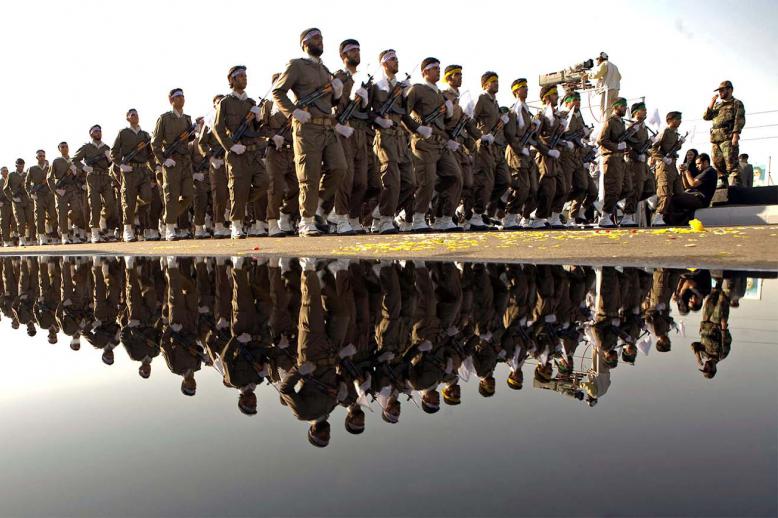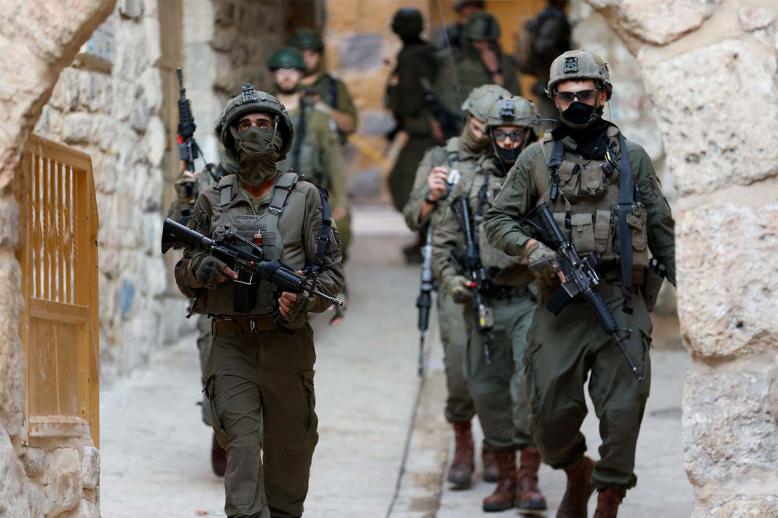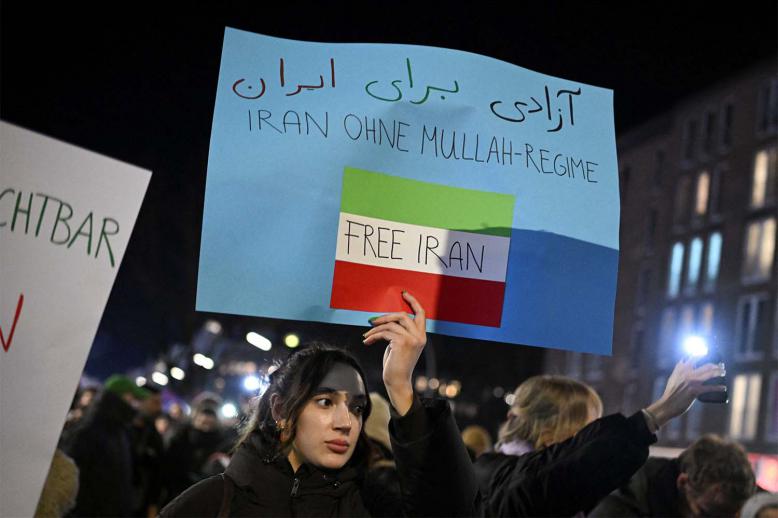Iran under the shadow of war as risks mount
Disentangling the United States from wars in the Middle East was one of the main campaign themes of US President Donald Trump and he is probably just as disinclined to start a war against Iran.
The regime in Tehran, acutely aware of the formidable might of the United States, is just as wary of starting a war it knows it would lose. However, both countries may be inching towards a situation in which miscalculation or accidents risk starting a military confrontation.
The United States is not seeking war with Iran, US national security adviser John Bolton said May 5 in a written statement. However, in response to “escalatory indications and warnings,” the United States deployed the USS Abraham Lincoln Carrier Strike Group to the Gulf region “to send a clear and unmistakable message to the Iranian regime that any attack on United States’ interests or on those of our allies will be met with unrelenting force,” Bolton said.
On May 7, US Secretary of State Mike Pompeo abruptly cancelled a visit to Berlin and made an unscheduled trip to Iraq. He did not answer questions about the specific nature of Iran’s “escalation” but US Navy Captain Bill Urban, the US Central Command spokesman, said there were “indications that Iranian and Iranian proxy forces were making preparations to possibly attack US forces in the region.”
CNN, quoting unidentified US officials, reported that the United States received intelligence about Iran moving short-range ballistic missiles onto boats in the Arabian Gulf.
Washington’s gunboat diplomacy comes after what has been billed as a “maximum pressure” campaign against Tehran: The US withdrawal from the Iran nuclear deal and reimposition of unilateral American sanctions, the State Department’s designation of the Islamic Revolutionary Guard Corps (IRGC) as a foreign terrorist organisation, Washington’s decision not to renew exemptions to buyers of Iranian oil and Washington no longer permitting Iran to enrich uranium, all constitute components of the campaign.
Tehran has not officially responded to reports about arming boats with short-range ballistic missiles in the Gulf. Iranian President Hassan Rohani, whose political fortunes were ruined by the US withdrawal from the nuclear deal, still tries hard to keep it alive.
However, hard pressed by the IRGC and perhaps in an attempt to gain the political initiative, Rohani expressed on May 8 his government’s decision to “reduce some of its obligations under the nuclear deal.”
In a letter to the governments of France, Britain, China, Germany and Russia, Rohani emphasised Iran’s patience but “the counterpart did not live up to its obligations under the JCPOA (Joint Comprehensive Plan of Action as the nuclear deal is formally known), which did not leave Iran with any other choice but to reduce its own obligations.”
The IRGC has also been silent about reports about arming its boats with ballistic missiles. IRGC spokesman Brigadier-General Ramezan Sharif, speaking in Bandar Anzali in northern Iran, accused the United States of orchestrating “a vast psychological operation against the Iranian nation” and vowed to neutralise “conspiracies of the enemies of Islam and the revolution.”
The US military’s loud statements about the motive behind deploying the USS Abraham Lincoln Carrier Strike Group to the Arabian Gulf indicate Washington’s attempt at sending a strong signal to Tehran and avoiding a war.
However, a combination of Iran reducing the level of its obligations under the nuclear deal and the possibility of Tehran withdrawing from it increases the risk of a military confrontation with the United States. So do reports of the IRGC arming its boats. Even the slightest mistakes may result in war.
Ali Alfoneh is a Visiting Scholar at the Arab Gulf States Institute in Washington.
This article was originally published in The Arab Weekly.







